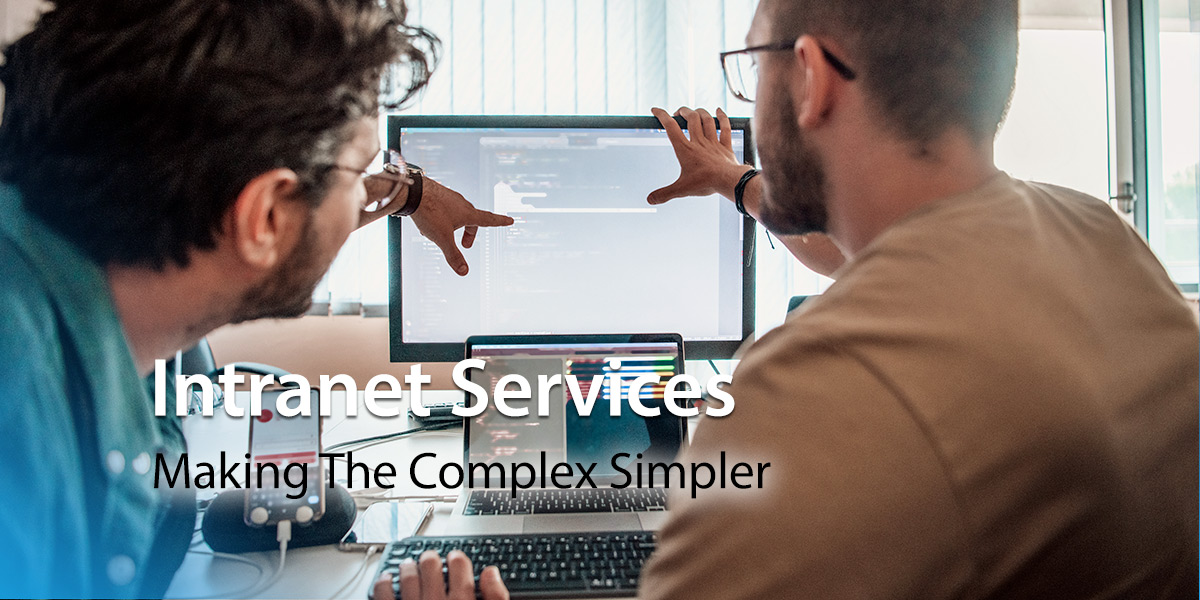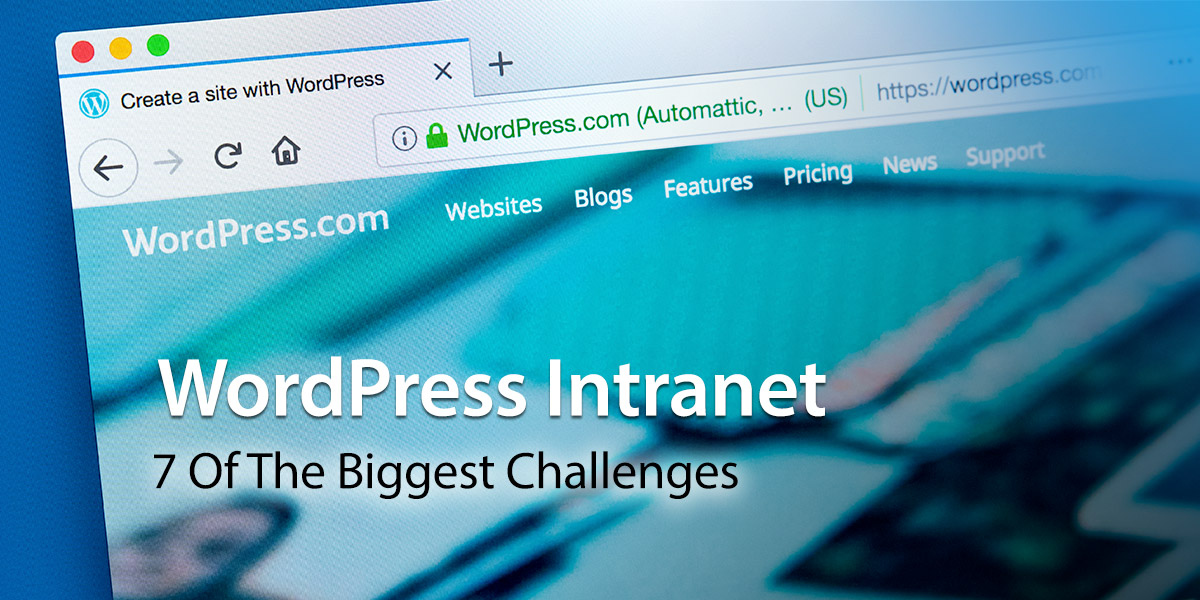Mention intranet security in the office, and you’ll probably be met with stifled yawns or glazed eyes. While it may not be the most exciting topic, a secure intranet in today’s digital age is critical for safeguarding sensitive information. According to Statista, the average cost of a data breach in the US in 2023 is a whopping $9.48 million.
However, we often assume that the intranet platform is somehow magically secure from viruses and hacking because it’s an internal network. The truth is it’s not. Internal networks are just as vulnerable to cyberattacks as public ones.
And the issue of intranet security goes beyond cyber security. Many of today’s data breaches originate from trusted employees using company devices. Ensuring that the right staff access the right information using secure mobile access is also critical to intranet security.
Today’s article walks you through all the latest intranet security best practices. We highlight security vulnerabilities and ways to keep the intranet secure. By the end, you’ll be able to develop a comprehensive security policy that’s fit for purpose in the digital workplace.
What Is Intranet Security?
An intranet is a private, separate network. Intranets provide employees with the tools needed to support their daily work. From internal communication to collaboration and knowledge sharing, a company’s intranet is where stuff gets done.
Protecting all that critical, sensitive data is where intranet security comes in. It describes an organization’s practices and technologies to address security threats and safeguard intranet data.
So, what are the main threats to your company’s intranet? Security risks come from both internal and external sources.
What Are The External Threats To Intranet Security?
Even though the intranet is a closed, private network, it’s still susceptible to hackers or malicious software, including worms, viruses, and malware. Let’s break these down and explore the security measures needed to mitigate the risks.
Network Security Threats
A firewall is the best protection against external threats. In simple terms, a firewall is a protective barrier between the intranet and the internet. It is a software program or a hardware device that filters the information coming through to the intranet from the internet. Firewalls may decide to allow or block network traffic between devices based on pre-configured rules set by the firewall administrator.
Firewalls provide security for several online threats. And while they cannot guarantee against all threats, they are an essential first line of defense.
Security Breaches
From time to time, your intranet may encounter suspicious traffic, like spam, phishing, spyware, or malware. Using an effective email filter and firewall helps block suspicious traffic. It also helps if you have security software at the edge of the network that recognizes the signature of potential hacks and blocks the offending IP address automatically.
Viruses
Most organizations understand they need to have anti-virus software installed. However, the threat from viruses is constantly changing. It’s vital to update the software with the latest versions regularly.
What Are The Insider Threats To Intranet Security?
Alongside the external threats are the internal ones. And it’s not just malicious acts from disgruntled former employees you need to worry about. According to one report, 82 percent of data breaches were caused by employee error or negligence. Let’s delve into the internal security challenges and how to address them.
Weak Passwords
Too often, users have weak passwords. They may share them with colleagues or fail to change them often enough.
Ensure your intranet software is set so that employees are required to change their passwords regularly. Every 60 days should be the minimum standard. Encourage workers to use strong passwords with a minimum length and a combination of letters, numbers, and keyboard symbols (for example, H2pl#5%).
Access Control
Are the right employees viewing the right information? Richard in Sales should not be able to access sensitive employee data.
You can restrict access for unauthorized users with a series of file and page permissions. These permissions mean that only those employees who need to can gain access. Set permissions by job title, team function, geographic location – whatever is appropriate for that data.
Be sure to review intranet software permissions regularly. There have been instances where former employees have accessed sensitive information years after they have left the company. The last thing you want is your own employees walking out the door and taking your customer data or intellectual property. Employees who no longer work for the company must have their access deleted as soon as they leave.
Encryption
Encryption is the process of converting data to an unrecognizable or “encrypted” form. It’s used to protect sensitive data so that only authorized parties can view it. Secure Socket Layer (SSL) is the standard encryption security technology millions of companies use worldwide, particularly for online shopping. When you see HTTPS at the beginning of the web address, you know that your connection is encrypted and is using SSL.
Encryption will protect sensitive information. For example, you can ensure the latest product information is secure within the intranet from unauthorized access. Make sure you select an intranet software solution that also encrypts all of your data at rest within the underlying database.
Remote Access
Increasingly, intranets are being accessed outside of the standard office environment by remote workers or deskless staff. Often, remote employees gain access to the organization’s digital portal using their mobile devices. Special steps are required to ensure security is maintained with remote access.
To ensure a secure environment, staff should install the latest anti-virus software and possibly even a personal firewall on any devices used to access the intranet.
Furthermore, workers using public 4G, 5G, or wifi networks expose company information to hacking or interception. And there’s also a risk if an employee’s mobile device is lost or stolen.
A range of measures can help mitigate these risks. Adopting secure extranet access technology such as SSL, VPN (Virtual Private Network), and Firewall Software can protect against security risks and unlawful interception and safeguard against virus attacks.
Features like automatic time-outs and preventing login details from being saved by the device are more straightforward ways to ensure intranet security.
5 Intranet Security Best Practices In 2023
As you can see, the world of intranet security is highly complex and is constantly changing. It’s a full-time job keeping updated on new technology, threats, and security standards. Even a well-resourced IT team in a large company can struggle to remain current.
Here are some five best practice tips to help you safeguard data security in your intranet solution.
1. Develop A Comprehensive Security Policy
Secure your intranet with a robust security policy. Make clear your expectations around things like strong passwords, permissions capabilities, and a secure home network for the remote workforce. Also, set out the processes for handling a security breach.
And make sure your security policy meets global standards. This is critical for regulated industries like government, healthcare, and finance. Relevant standards include SOC2, GDPR, HIPPA, and ISO 27001.
An intranet security policy is the first step in securing your intranet solution. It makes clear to intranet users the part they have to play and the processes in place to safeguard data security.
2. Develop Secure Log In Protocols
Weak passwords make the company intranet vulnerable. Single-sign-on is one of the most critical intranet security best practices. Single sign-on is an authentication process allowing intranet users to access different apps using one login. With just one strong password in play, enforcing regular password changes is a whole lot easier. Similar options include active directory and lightweight directory access protocols.
3. Limit Access
No employee needs to see every section of the intranet. Limiting access with permissions capabilities is one of the best things you can do to reduce risk. That way, employees only get to view data needed to perform their jobs.
Employees change roles and responsibilities all the time. So, regularly review your site permissions to ensure they remain current. Furthermore, remove access promptly as part of the offboarding process for workers leaving the organization.
4. Secure Third-Party Software
In the digital workplace, modern intranets often connect with third-party software. It could be a CRM platform or an HR system. While that’s good news for employee productivity, it does expose the intranet to security issues.
Make sure any API integrations offer secure endpoints. That way, your private API data isn’t exposed to external parties that might want to gain access.
5. Remote Working
Make sure your remote working employees’ home wifi network is fit for purpose. At the very least, this means having a secure password rather than ‘ABC123’ and forcing them to change it regularly.
Some organizations even go so far as to require employees to create a separate work network or connect to the intranet through the company’s VPN.
Cloud-hosted Solutions vs. Onsite Intranets
Let’s finish by exploring the security implications of an onsite intranet vs. a cloud solution like MyHub or SharePoint intranets.
If your organization is hosting the office intranet via a company server, then the responsibility for intranet security rests entirely with you. Making sure you have firewalls with the right rules, SSL connections, compliance, updates, and backups is down to you. Furthermore, keeping abreast of the latest threats and technologies is also down to you. It’s quite a daunting prospect, right?
Most modern intranets are cloud-hosted solutions. And the good news is that the intranet software provider is responsible for intranet security. Important and sensitive company data remains secure and hosted in a private cloud. Furthermore, content is delivered securely via SSL and the web browser. The cloud’s security features regularly undergo independent security audits to protect the confidentiality of your organization’s data.
Furthermore, the intranet provider will have expert knowledge unlikely to be matched in a corporate setting. It’s in their interests to keep on top of security standards. Their reputation and brand depend on their ability to deliver on intranet security.
You would likely need to use the expertise of a qualified electrician to repair an electrical fault in the office. Similarly, why risk the security of your intranet when you can have the assurance and expertise of a cloud-hosted solution?
About MyHub
If you want to guarantee your company intranet’s security, integrity, and confidentiality, check out MyHub’s platform. Our software is one of the most secure on the market. It comes with all the latest security features for the digital workplace, including single-sign-on, SSL, and two-way encrypted connections. We even offer a secure mob app for remote employees. Sign up for a free demo or 14-day trial today.










Is it safe to type in my company login details into Amy company intranet page which is not secure?
Hi Harvey, I’d suggest that you shouldn’t be typing in any login details in any web page that isn’t secure. If this is a MyHub specific question, our support team will be happy to provide you with further guidance. Please can you contact them using support@myhubintranet.com